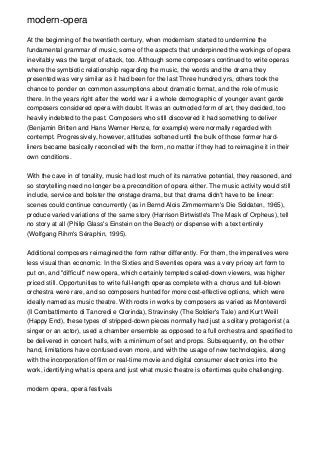Recommended
Recommended
More than Just Lines on a Map: Best Practices for U.S Bike Routes
This session highlights best practices and lessons learned for U.S. Bike Route System designation, as well as how and why these routes should be integrated into bicycle planning at the local and regional level.
Presenters:
Presenter: Kevin Luecke Toole Design Group
Co-Presenter: Virginia Sullivan Adventure Cycling AssociationMore than Just Lines on a Map: Best Practices for U.S Bike Routes

More than Just Lines on a Map: Best Practices for U.S Bike RoutesProject for Public Spaces & National Center for Biking and Walking
More Related Content
Featured
More than Just Lines on a Map: Best Practices for U.S Bike Routes
This session highlights best practices and lessons learned for U.S. Bike Route System designation, as well as how and why these routes should be integrated into bicycle planning at the local and regional level.
Presenters:
Presenter: Kevin Luecke Toole Design Group
Co-Presenter: Virginia Sullivan Adventure Cycling AssociationMore than Just Lines on a Map: Best Practices for U.S Bike Routes

More than Just Lines on a Map: Best Practices for U.S Bike RoutesProject for Public Spaces & National Center for Biking and Walking
Featured (20)
Content Methodology: A Best Practices Report (Webinar)

Content Methodology: A Best Practices Report (Webinar)
How to Prepare For a Successful Job Search for 2024

How to Prepare For a Successful Job Search for 2024
Social Media Marketing Trends 2024 // The Global Indie Insights

Social Media Marketing Trends 2024 // The Global Indie Insights
Trends In Paid Search: Navigating The Digital Landscape In 2024

Trends In Paid Search: Navigating The Digital Landscape In 2024
5 Public speaking tips from TED - Visualized summary

5 Public speaking tips from TED - Visualized summary
Google's Just Not That Into You: Understanding Core Updates & Search Intent

Google's Just Not That Into You: Understanding Core Updates & Search Intent
The six step guide to practical project management

The six step guide to practical project management
Beginners Guide to TikTok for Search - Rachel Pearson - We are Tilt __ Bright...

Beginners Guide to TikTok for Search - Rachel Pearson - We are Tilt __ Bright...
Unlocking the Power of ChatGPT and AI in Testing - A Real-World Look, present...

Unlocking the Power of ChatGPT and AI in Testing - A Real-World Look, present...
More than Just Lines on a Map: Best Practices for U.S Bike Routes

More than Just Lines on a Map: Best Practices for U.S Bike Routes
Ride the Storm: Navigating Through Unstable Periods / Katerina Rudko (Belka G...

Ride the Storm: Navigating Through Unstable Periods / Katerina Rudko (Belka G...
modern-opera
- 1. modern-opera At the beginning of the twentieth century, when modernism started to undermine the fundamental grammar of music, some of the aspects that underpinned the workings of opera inevitably was the target of attack, too. Although some composers continued to write operas where the symbiotic relationship regarding the music, the words and the drama they presented was very similar as it had been for the last Three hundred yrs, others took the chance to ponder on common assumptions about dramatic format, and the role of music there. In the years right after the world war ii a whole demographic of younger avant garde composers considered opera with doubt. It was an outmoded form of art, they decided, too heavily indebted to the past. Composers who still discovered it had something to deliver (Benjamin Britten and Hans Werner Henze, for example) were normally regarded with contempt. Progressively, however, attitudes softened until the bulk of those former hard- liners became basically reconciled with the form, no matter if they had to reimagine it in their own conditions. With the cave in of tonality, music had lost much of its narrative potential, they reasoned, and so storytelling need no longer be a precondition of opera either. The music activity would still include, service and bolster the onstage drama, but that drama didn't have to be linear: scenes could continue concurrently (as in Bernd Alois Zimmermann's Die Soldaten, 1965), produce varied variations of the same story (Harrison Birtwistle's The Mask of Orpheus), tell no story at all (Philip Glass's Einstein on the Beach) or dispense with a text entirely (Wolfgang Rihm's Séraphin, 1995). Additional composers reimagined the form rather differently. For them, the imperatives were less visual than economic. In the Sixties and Seventies opera was a very pricey art form to put on, and "difficult" new opera, which certainly tempted scaled-down viewers, was higher priced still. Opportunities to write full-length operas complete with a chorus and full-blown orchestra were rare, and so composers hunted for more cost-effective options, which were ideally named as music theatre. With roots in works by composers as varied as Monteverdi (Il Combattimento di Tancredi e Clorinda), Stravinsky (The Soldier's Tale) and Kurt Weill (Happy End), these types of stripped-down pieces normally had just a solitary protagonist (a singer or an actor), used a chamber ensemble as opposed to a full orchestra and specified to be delivered in concert halls, with a minimum of set and props. Subsequently, on the other hand, limitations have confused even more, and with the usage of new technologies, along with the incorporation of film or real-time movie and digital consumer electronics into the work, identifying what is opera and just what music theatre is oftentimes quite challenging. modern opera, opera festivals
